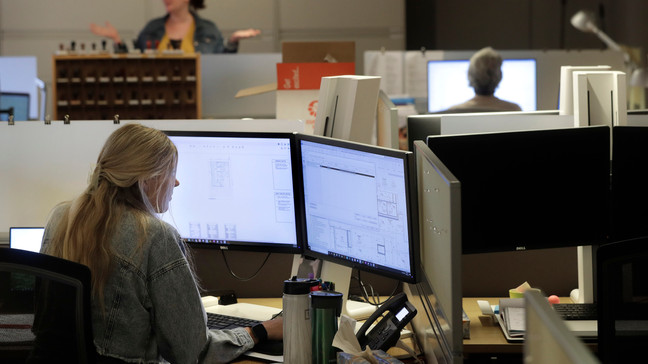Would a 32-hour workweek work?
(TND) — Sen. Bernie Sanders has introduced a bill to encourage a shortened workweek.
Sanders’ bill would phase in a reduction of the federal threshold for overtime pay from 40 hours to 32.
And he says his bill would protect workers’ pay and benefits.
The current 40-hour overtime protections have been around since 1940.
“Unbelievably, 84 years later, despite massive growth in technology and worker productivity, millions of workers in our country are working longer hours for low wages,” Sanders said at a Senate committee hearing on the issue Thursday. “And I hope people hear this, because it's not an issue we talk about enough.”
Sanders pointed to government statistics that he said show American workers are over 400% more productive than they were in the 1940s.
He pointed to survey data that shows nearly 40% of full-time workers log over 50 hours a week.
And he said the average American worker makes almost $50 a week less than they did 50 years ago after adjusting for inflation.
“Now, let that sink in for a moment,” Sanders said. “Think about all of the extraordinary changes in technology that we have seen over the last 50 years. Computers, robotics, artificial intelligence, and the huge increase in worker productivity that has been achieved during that time.”
He said the average Joe hasn’t benefited from the rising productivity in the way companies and executives have.
“This is not a radical idea,” said Sanders, noting Americans work hundreds of hours more each year than workers in places like Japan, the U.K. and Germany.
Sen. Bill Cassidy, a Republican and the ranking member of the committee that convened Thursday’s hearing, countered that government efforts to shorten the workweek would likely lead to the outsourcing or automation of jobs, and companies might raise prices to compensate.
Cassidy said the bill amounts to “free money” for workers while hurting businesses.
“If this policy is implemented, it would threaten millions of small businesses operating on a razor-thin margin,” he said.
Juliet Schor, one of the hearing witnesses and a supporter of the bill, said she’s been involved in research showing promise of a 32-hour workweek being good for both employees and employers.
Schor, a sociology professor at Boston College and lead researcher for 4 Day Week Global trials, said some companies are open to the idea of a shorter workweek after dealing with high turnover and stressed employees during the pandemic.
“In response, an increasing number of employers are shifting to a four-day, 32-hour week with no reduction in pay,” she told lawmakers. “I was asked to lead research on their experiences in collaboration with (a group) called 4 Day Week Global. To date, more than 300 companies around the world have taken part in our trials. While the majority are white-collar firms, they do include all sectors.”
Schor said the trials included companies in health care, restaurants, manufacturing, construction, retail, nonprofits, information technology and finance.
Nearly 60% of employees involved in the trials experienced better work-family balances, she said.
Nearly 70% of employees registered lower burnout scores.
And she said workers were more productive because they were more focused and energized.
Resignations for the trial companies fell 22%.
Absenteeism declined 39%.
And revenue increased an average of 30%, she said.
The majority of trial companies have stuck with the shorter workweeks for at least a year.
Labor economist Aaron Sojourner, who was not involved with the hearing, said Friday that lowering the overtime threshold is feasible, but ensuring worker pay doesn’t suffer would be difficult.
He called the part of the bill intended to protect wages “wishful.”
“I think employers would have a strong incentive to find ways around it, and employers are very creative in this kind of way,” he said.
But Sojourner said whether American workers deserve a shorter week is, indeed, a “legitimate debate to have.”
And seeing the workweek change as technology and the labor force evolve wouldn’t be out of historical norms, he said.




